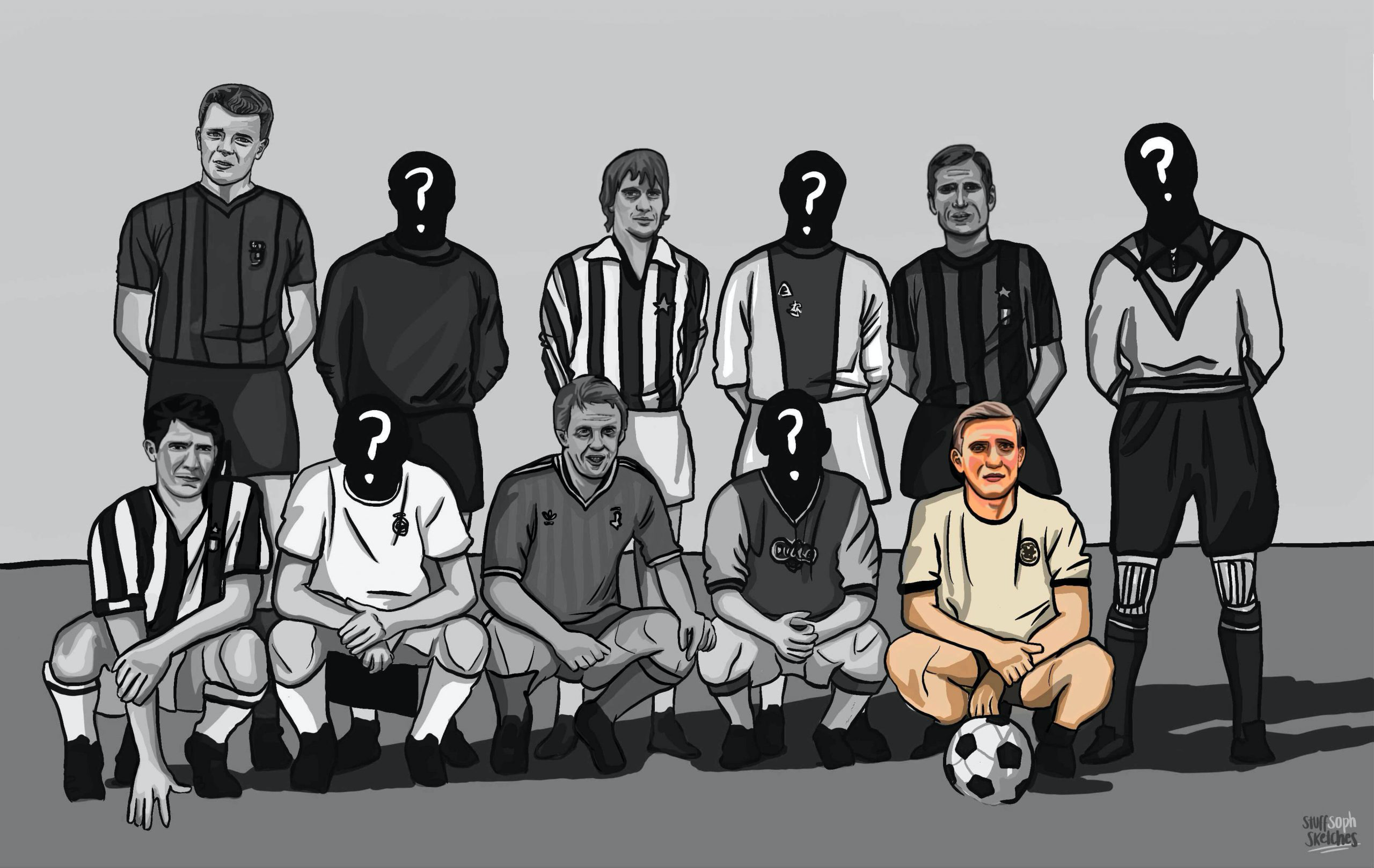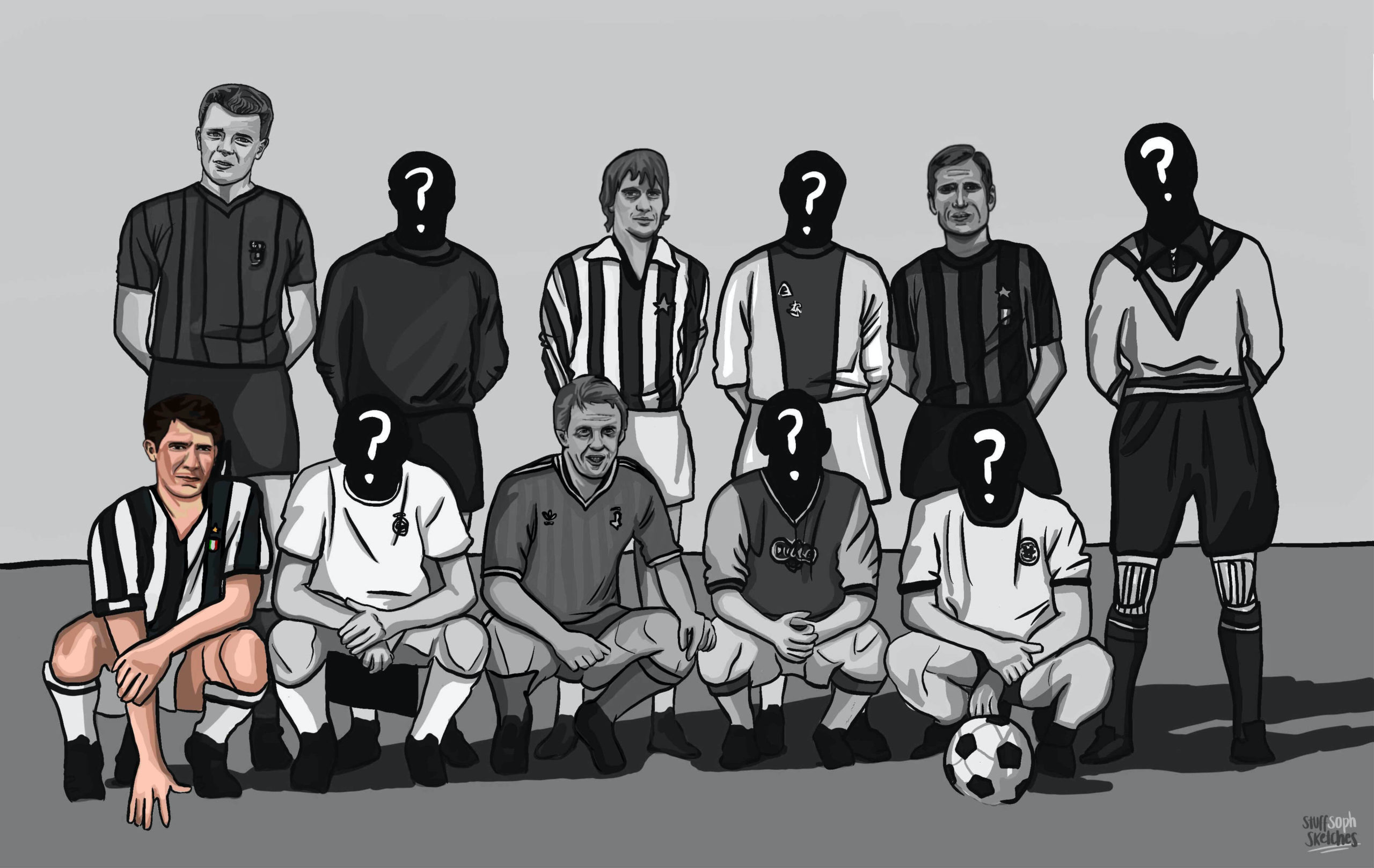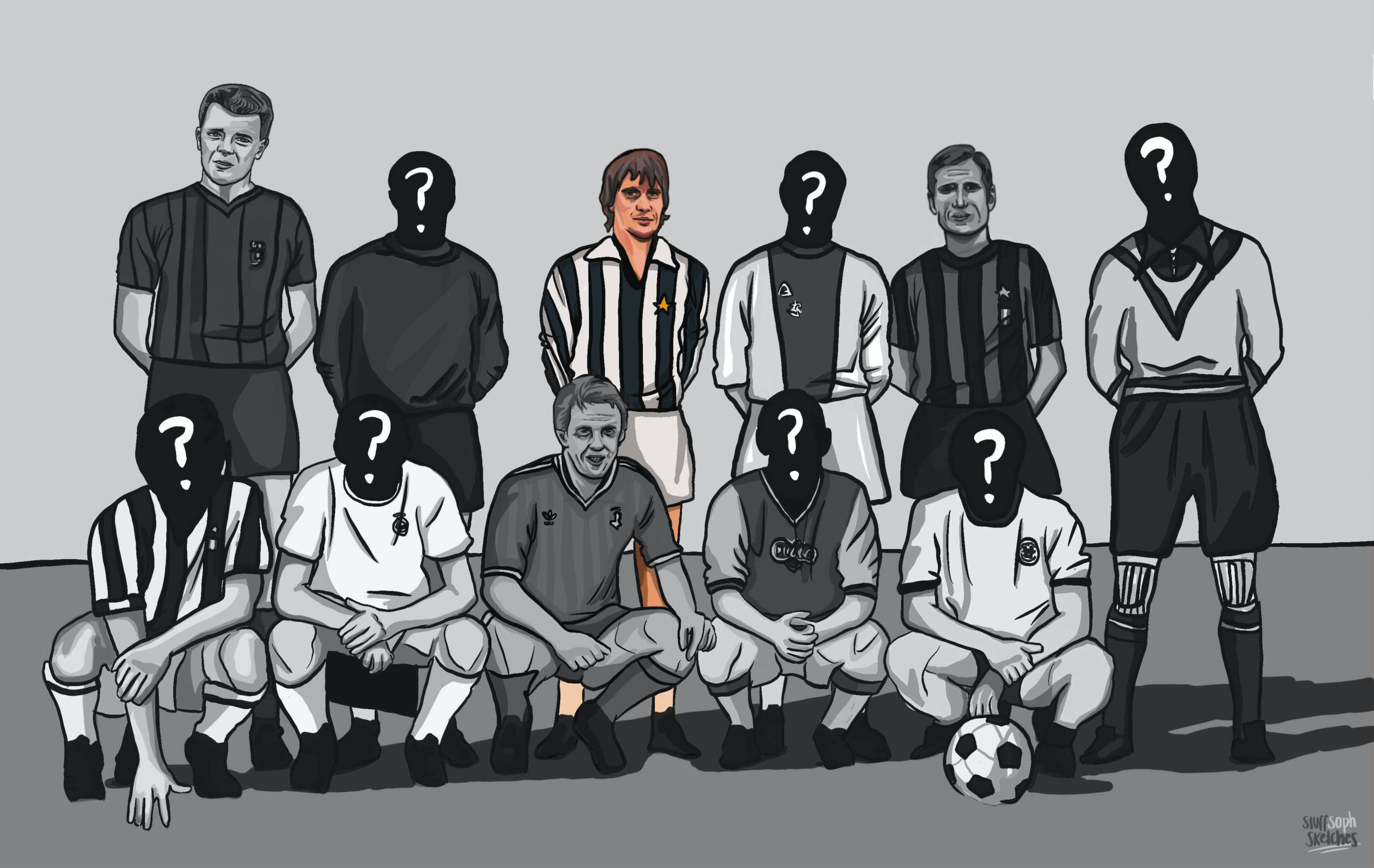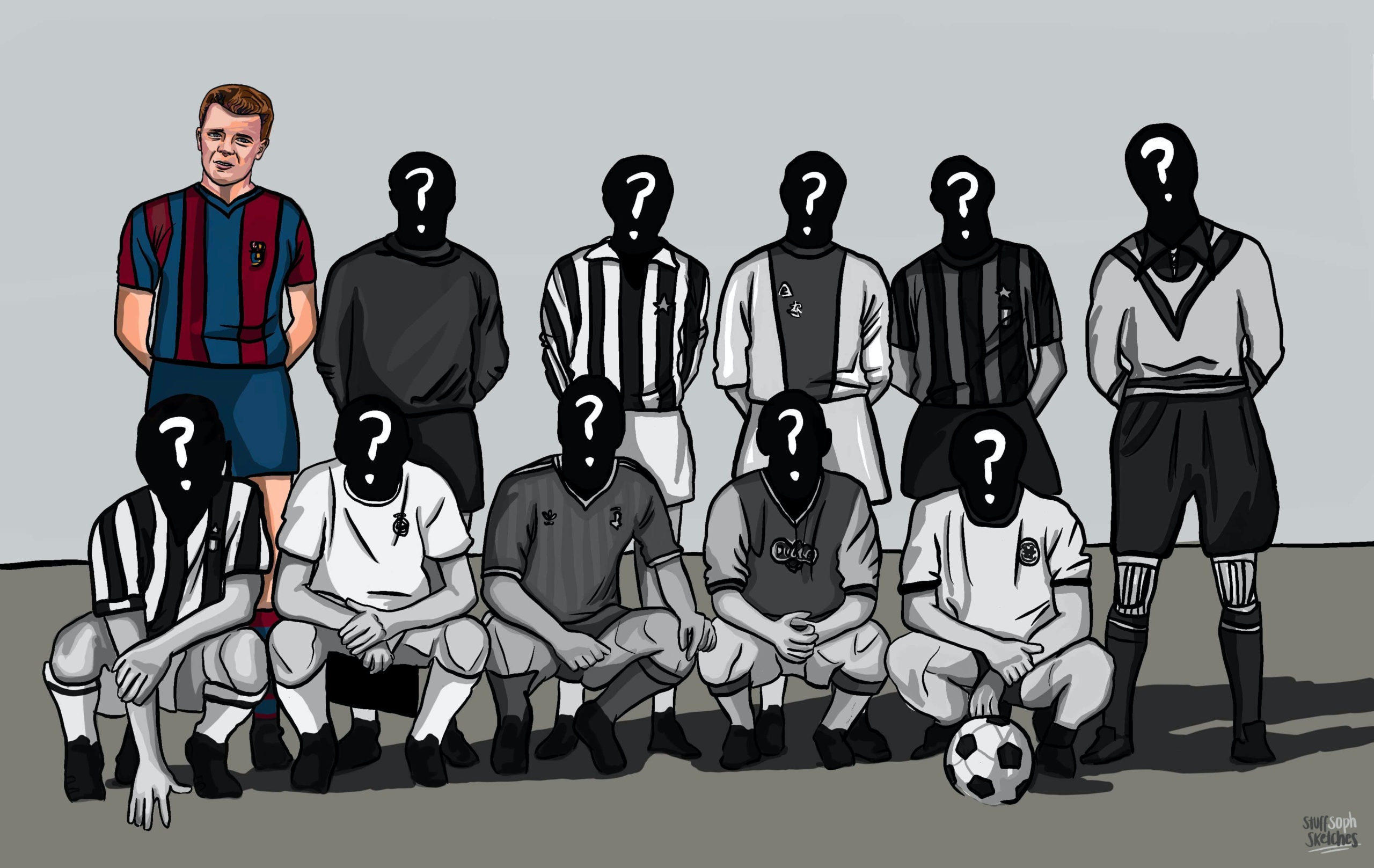It seems some footballers are born to shine fierce and brightly, to receive plaudits and adulation from fellow professionals and fans alike, to enjoy respectability and fame as well as endorse products and earn money alongside their day-jobs as professional athletes. Their abilities are rarely questioned, instead, their skills are exaggerated, and their achievements made greater still. Today, more and more of these players step over into mainstream popular culture with popular Twitter feeds and other social media outlets – we can read their musings on how they feel about the victory at the weekend and what music they are currently enjoying (Bruce Springsteen’s Nebraska, if you’re interested). Then there are the footballers, without whom, the superstars would struggle to perform the way they do, the players who go about their work efficiently and quietly. The players who, after the game is played or their careers are over, return home and enjoy a relatively normal life. Whilst these stars may not shine as brightly as others, their contribution is never underestimated by those who know the game well or play alongside them.
Before injury forced his premature retirement, Hans-Georg Schwarzenbeck played for Bayern Munich from 1966 until 1979. Known affectionately as “The Kaiser’s Bodyguard” at centre-back, Schwarzenbeck represented West Germany forty-four times and was impressively a one-club man. A sensible gentleman, he even completed his printer apprenticeship before committing to Bayern just in case football didn’t work out.
Schwarzenbeck was never concerned that his somewhat wooden and clumsy style of play left him in Beckenbauer’s shadow.
Born in Munich on 3 April 1948, Schwarzenbeck was well known to many as Katsche – although even he is unsure as to why that was. Having joined the Bayern youth team in 1962, Schwarzenbeck made his senior debut for the club four-years later in 1966. After leaving school and starting an apprenticeship as a typographer, Schwarzenbeck almost quit playing football for it was difficult to balance the demands of both. His debut for the West Germany youth team probably hadn’t helped either, nor did it suggest that Katsche was destined for great things; Schwarzenbeck scored an own goal and gave away a penalty (perhaps this inspired Jonathan Woodgate’s debut for Real Madrid in 2005, for how else do you explain an own goal and a sending off?). Nevertheless, Katsche decided against giving up on football, but he did complete his apprenticeship – a wise move seeing that a footballer’s career can be short-lived if plagued by injury or the coach doesn’t favour you. Fortunately, Zlatko “Čik” Čajkovski, Schwarzenbeck’s coach, did like him as his no-nonsense style was the perfect accompaniment to his “thoroughbreds”. Schwarzenbeck made his debut as a left-back, but in 1968, the new manager Branko Zebec decided he would make a better centre half, a decision from which Katsche never looked back.
Schwarzenbeck was never concerned that his somewhat wooden and clumsy style of play left him in Beckenbauer’s shadow, stating that he always knew what he could and couldn’t do. A reliable and efficient player, Schwarzenbeck’s dedication to his job and willingness to harass, tackle and disrupt the opposition complimented Beckenbauer perfectly. Beckenbauer himself noted that having a reliable and loyal assistant in Schwarzenbeck allowed him the freedom to play in his attacking libero style. Playing together for eleven years, the German pair developed a perfect understanding that benefitted Bayern Munich and the West German national team. When discussing Beckenbauer and the difference in their footballing styles, Schwarzenbeck once stated that ‘Franz reminds me of my old teacher in the printing office. He handled printing ink all day long but still his hands always were clean. I, however, only had to look at the printing machine and I already would get dirty!’.
Between 1967 and 1976, Schwarzenbeck was an integral member of the Bayern team that would win four Bundesliga titles, three DFB-Pokal-German Cups, three European Champion Cups in consecutive years, UEFA Cup Winner’s Cup, and the Intercontinental Cup in 1976. Alongside his club teammates Franz Beckenbauer, Sepp Maier, Gerd Müller, Paul Breitner and Uli Hoeneß, Schwarzenbeck would help West Germany win the World Cup in their home country in 1974. Two years earlier, Schwarzenbeck had been a member of the West German team that had won the European Championship and would still be part of the team that would finish runner up to Czechoslovakia in the European Championships of 1976. Schwarzenbeck believes that the foundations of Bayern’s success were, in part, due to the high standards instilled in him from the first day he signed a contract with the Bavarian club. Manager Robert Schwan explained to Schwarzenbeck and the other youngsters that Bayern always want to be number one and, while the young lads signing were nice guys, if they couldn’t take the pressure, they would have to go elsewhere.
Schwarzenbeck’s finest hour came in 1974 as part of the European Champions Cup final against Atlético Madrid. Deep into extra time, trailing 1-0 and with almost the last kick of the game, Schwarzenbeck received a pass from Beckenbauer in the Atlético half, driving forward and, approximately thirty yards from goal, Katsche took aim and shot at Miguel Reina’s goal (Pepe Reina’s father). Beckenbauer recalls thinking ‘Please don’t let the ball fly out of the ground’ adding that it wasn’t his job or speciality to shoot from distance. Thankfully for Bayern, the ball flew into the bottom corner. Watching footage of the goal, Reina and the Atletico players look almost as stunned by what happened as the opposition did. It was later remarked that Schwarzenbeck shouldn’t have passed the halfway line, let alone shoot – although Schwarzenbeck himself joked that ‘even Pelé wouldn’t have been scored that one’. For the only time in the entire history of the tournament the match went to a replay, which Bayern, still riding high from coming back from the dead, won 4-0. The miracle of Brussels was born.
Whatever his limitations as a player, Schwarzenbeck was not short of admirers and had offers to play elsewhere, both from German and European clubs. Having marked Dennis Law in an international friendly, the Scottish international waited for Schwarzenbeck in the tunnel with a consultant to persuade him, with the possibility of good money, to sign with Manchester United. Schwarzenbeck’s answer? He thanked them for their time and left. A move away from Munich was unimaginable.
In 1978, when asked what he would like to do when he retired, shortly before going to the World Cup in Argentina, Schwarzenbeck hoped to take over the running of the stationary shop owned by his two aunties. In 1981, as a result of an injury, this is exactly what he did. For twenty-seven years, Schwarzenbeck would be behind the counter, regaling clients with tales from his successful footballing days, until he closed the shop in 2008. Shortly before his seventieth birthday, he was still delivering supplies to FC Bayern before going home for breakfast each day. Unsurprisingly, for a man who combined unassuming modesty with incredible success, Schwarzenbeck considers having played for Bayern the dream job not just because of the titles and trophies but also because he got the opportunity to travel and see the world. ‘If you drive through slums by bus or look out of the hotel at the corrugated iron huts, you get a different view of life and are happy and humble to live in Munich’.



